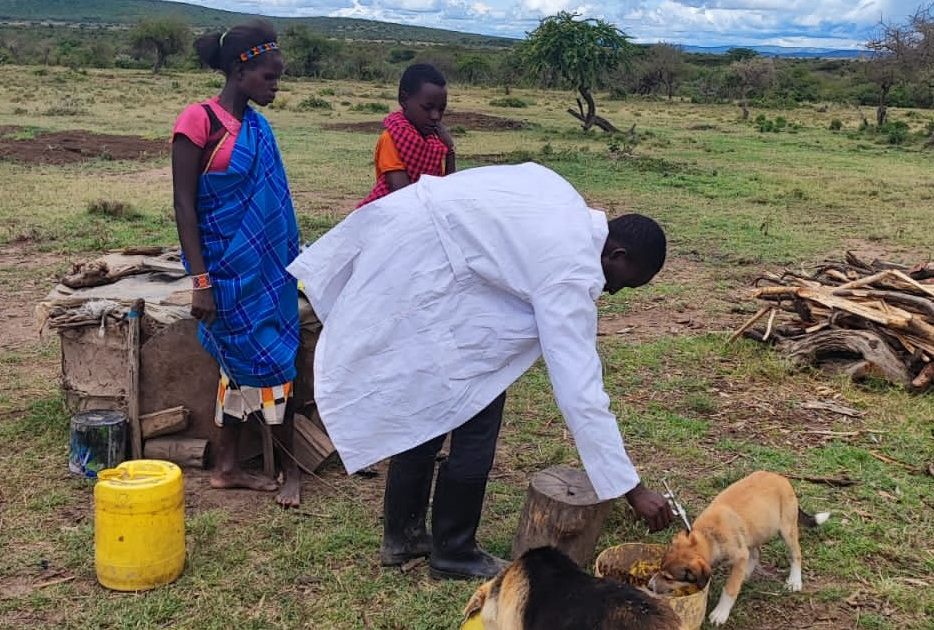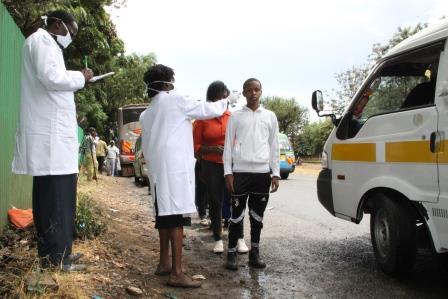The Kenya Red Cross Society in Narok County has collaborated with veterinary doctors to vaccinate over 2, 000 dogs in parts of Narok South and West Sub County.
Narok Red Cross representative Hazael Biwott said the move was motivated by an incident where an elderly person succumbed to rabies raising concerns that the disease could easily spread fast in the area.
The free vaccines were given by Vet Aid and are expected to benefit the people of Loita ward in Narok South and Naikkara ward in Narok West Sub County.
Biwott said the vaccination was free of charge and aimed at curbing the spread of the deadly disease that is mainly transmitted by infected dogs, cats or wild animals.
“We target over 70 per cent of dogs that live in the wildlife dominated area. We want to control the disease before it spreads because it’s fatal and once a person is bitten by a sick dog, chances of survival are almost nil,” he said.
Red Cross Society, he said, works closely with the veterinary doctors to ensure the community is well informed on rabies where they encourage the residents to visit the hospital immediately in case they are bitten by a dog.
Biwott called on residents to immediately wash a dog bite wound for at least 15 minutes with running water before visiting a doctor.
“Rabies is 100 per cent preventable but 99 per cent fatal. This is why we are here to encourage dog owners to vaccinate their dogs to prevent rabies,” he said.
Veterinaires Sans Frontieres (VSF) representative Dr Ezra Kotonto, whose organisation was involved in the vaccination campaign observed that many people do not take the disease seriously as the symptoms are first seen after 14 days, in humans, when it is too late to treat.
“The fact is that a dog can take over one month before showing symptoms of rabies hence a dog owner can live with his dogs for over a month without it showing any sign of rabies,” he said.
He reiterated that the disease has high economic effects globally because of its high cost of treatment observing that in Kenya over 260 people die annually because of rabies.
“The best way to keep off rabies is by annual vaccination that can cost a farmer less than Sh. 200. Treating rabies is very expensive as it can cost a person over Sh. 10, 000,” he said, adding that an infected dog can transmit the disease to other domestic animals like cattle, donkeys and goats.
By Ann Salaton





